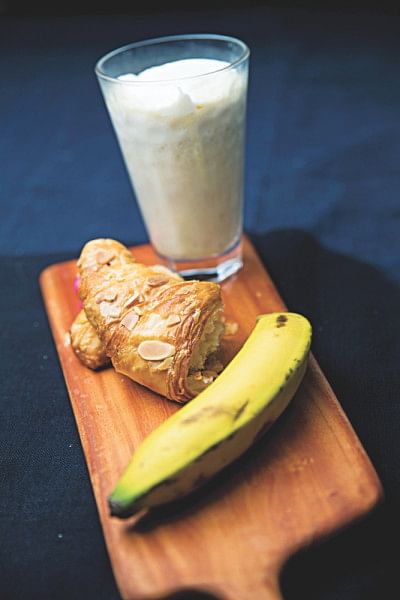Fighting fever with a change in diet

Fevers can be caused by several factors — infection caused by bacteria, fungi, virus, and also, as a result of certain inflammatory conditions like arthritis, inflammation of the lining of joints, etc. Heat exhaustion, extreme sunburn can also be the cause.
It is important that we make changes in our diet when suffering from fever. Resting, drinking fluids, and getting proper nutrition are some of the most important things we can do to feel better, and recover faster. One should note that if the temperature is high, the energy requirement of the body increases by 50 percent. This is a direct result of tissue damage.
In order to battle the ailment, a high protein diet supplying 1.25-1.5g protein/kg of body weight should be consumed. Protein supplements can be incorporated in the form of liquids. Fried food should be avoided; sufficient intake of all vitamins, sodium, and potassium is necessary.
Sea fish is an excellent source of protein. It also contains omega-3 fatty acids and vitamin D, which fight inflammation and boost immune function.
While suffering from fever, the body loses a lot of fluids through perspiration and excretory wastes. This lost water-content should be replenished by consuming plenty of water, green coconut water, fruits and vegetables, and soups. The portions should be small and as frequent as 6-8 helpings per day.
Chicken soup is an easy-to-consume source of vitamins, minerals, calories and protein, which are nutrients that the body needs in larger quantities whenever we are ill. It is also an excellent source of fluids and electrolytes, both of which are necessary for hydration at the time of fever.
Bananas are easy to chew, bit bland in flavour, yet it can provide decent amounts of calories and nutrients. They are part of the BRAT diet (bananas, rice, applesauce, toast) that is often recommended for nausea.
Chicken soup is also more effective at clearing nasal mucus than any other fluid. This means it's a natural decongestant. Another reason for this effect is that chicken contains the amino acid cysteine, which breaks apart mucus and has anti-viral, anti-inflammatory, and antioxidant effects. It also inhibits the action of neutrophils, which are white blood cells that may cause symptoms such as coughing and a stuffy nose.
Garlic has been used as a medicinal herb for centuries and has demonstrated antibacterial, antiviral, and anti-fungal effects. It can also stimulate the immune system. Adding garlic to chicken soup or broth can both add flavour and make these even more effective at fighting off cold or flu symptoms.
If suffering from fever, green coconut water is one of the best beverages to consume. Besides being sweet and flavourful, it contains glucose and the electrolytes needed for re-hydration. It contains antioxidants that can fight oxidative damage and may also improve blood sugar control.
Tea is a good source of fluids and acts as a natural decongestant when hot. Black tea can decrease the growth of bacteria in the throat. Tea also contains polyphenols, which have antioxidant and anti-inflammatory action to anti-cancer effects.
Honey has antibacterial effects and stimulates the immune system. It can also help relieve coughing in children over 12 months of age. Ginger is also very effective at relieving nausea. It also has anti-inflammatory and antioxidant effects.
Bananas are easy to chew, bit bland in flavour, yet it can provide decent amounts of calories and nutrients. For these reasons, they are part of the BRAT diet (bananas, rice, applesauce, toast) that is often recommended for nausea. Another big benefit of bananas is the soluble fibre they contain.
Yoghurt is an excellent food to eat when one suffers from fever. It provides 150 calories and 8gm of protein per cup. Rich in calcium and full of other vitamins and minerals, yoghurt also has beneficial probiotics, which can help both children and adults get colds less often, heal faster when sick, and take fewer antibiotics. Yoghurt is easy to eat and a good source of calories, protein, vitamins, and minerals. Some yoghurts also contain probiotics, which can help prevent frequent sickness, and get better faster.
Several studies found that fruit extracts high in anthocyanins can inhibit common viruses and bacteria from attaching to cells. They also stimulate the body's immune response. In particular, pomegranates have strong antibacterial and antiviral effects that inhibit food-borne bacteria and viruses. Many fruits contain flavonoids called anthocyanins that can fight viruses and bacteria and stimulate the immune system.
Flavonoid supplements can also be beneficial.
Vegetables are good sources of vitamin A, vitamin C, vitamin K, and folate. Leafy green vegetables are full of fibres and nutrients that we need while sick especially for their antibacterial, anti-inflammatory and antioxidant properties.
Photo: LS Archive/Sazzad Ibne Sayed

 For all latest news, follow The Daily Star's Google News channel.
For all latest news, follow The Daily Star's Google News channel. 



Comments